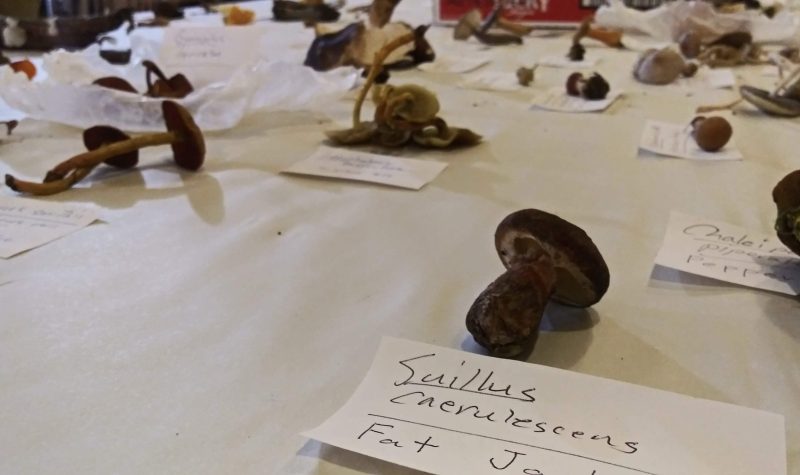The Forest Trust for the Children of Cortes Island (FTCCIS) held a 24 hour Mycoblitz last week.
Similar to Bioblitz, the educational community event records the biodiversity of a specific region, like Cortes Island, and the data is utilized by scientists to determine the range and abundance of any specific species. Sometimes this data contributes to the declaration of at-risk or nearly extinct species due to loss of habitat.
The public event featured three mycologists: Andy MacKinnon, Paul Kroeger, and Paul Stamets and saw participation from all ages acting as citizen scientists, collecting information that will be used in multiple scientific databases including the UBC’s Beaty Biodiversity Museum.
CKTZ attended the event at the Linnaea Education Centre on Nov. 1 which saw about 80 participants. The experts were asked why this moment in time is a significant opportunity to publicly engage communities about fungi. Stamets explained how we can learn from how mushrooms cooperate.
“Every mushroom that you pick is a doorway into a vast underground network of mycelium that builds upon these elaborate relationships, guilds. Fungal networks create guilds of cooperating microorganisms, bacteria and so many other organisms that cooperate and the contribution of the skill sets of all these other organisms work in a guild, builds community strength and community immunity.”
“I think Cortes in particular, is at the threshold of being a part of this paradigm shift," Stamets continued. "The respect for the indigenous people, the respect for biodiversity, ethnicities… this culture here works, and maybe people don't understand it.”
Kroeger, president of the Vancouver Mycological Society, is responsible for documenting 3,500 mycelial species in British Columbia. He elaborated on the importance of exploring this "last frontier" of biodiversity.
“Us humans are now at a critical point in our relationship to the earth, and we have had an incredible negative impact on the Earth's biodiversity. And now is when it's more critical than ever to understand biodiversity. …[Fungi] are understudied, [but] easy for the average person to see,” Kroeger continued.
“Citizen scientists [are] just as important as ever and especially with the mushrooms… citizen science is now getting great credibility from the academic community because they don't have the time or resources to do it themselves.”
To hear more, listen to the CKTZ News Update below:


